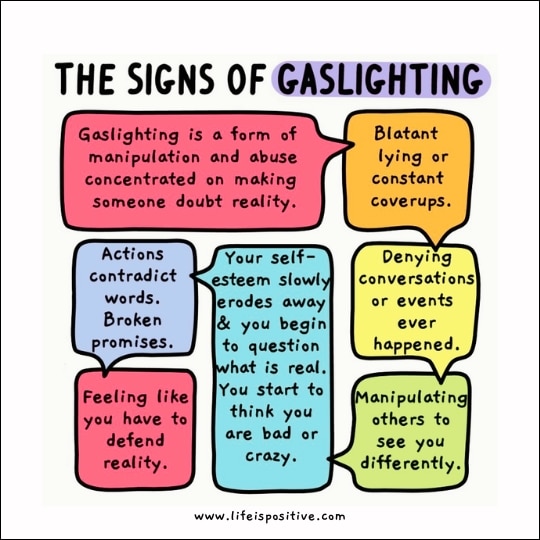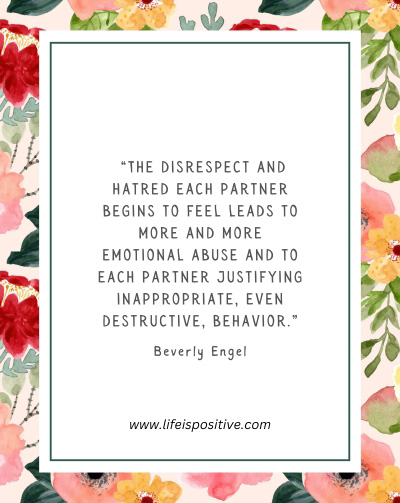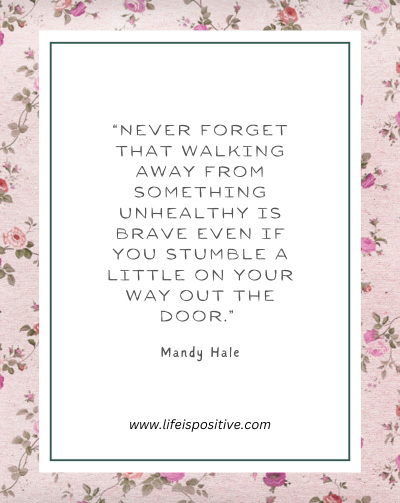|
Getting your Trinity Audio player ready...
|
Love should feel like freedom, not a power struggle. If you’re constantly walking on eggshells, asking for “permission,” or feeling more managed than supported, it’s time to explore how to handle a controlling partner. This isn’t about starting drama—it’s about protecting your peace and honoring your worth.
Knowing how to handle a controlling partner starts with spotting the signs, setting clear boundaries, and standing firm in your truth. You deserve a relationship that uplifts, not limits. Let’s talk about how to shift the dynamic and get your power back.
Controlling Partner Signs
Spot the telltale signs of a controlling partner and learn to sniff out manipulative behavior in relationships.
1. The Guilt Trip Express
Ah yes, the guilt-trip express—where love is conditional and manipulation wears a sweet smile. Lines like “If you loved me…” or “After all I’ve done for you…” are red flags in disguise.
This emotional pressure cooker is designed to make you question your needs and give in. Real love respects boundaries—it doesn’t guilt you into crossing them.
2. The Silent Treatment
Ah, the dreaded cold shoulder—the silent treatment’s dramatic cousin. One minute you’re close, the next you’re ghosted in plain sight. No texts, no calls, just ice.
This move isn’t just rude; it’s control in disguise. It’s meant to make you chase, apologize, and bend. Don’t fall for it. Real love talks things out, not freezes you out.
3. The Gaslight Gala
Gaslighting is a manipulative mind game where your reality gets rewritten. If you’re hearing “You’re too sensitive” or “That never happened,” you’re not crazy—they’re gaslighting.
It chips away at your confidence and leaves you second-guessing yourself. Over time, you start trusting their version of the truth over your own. Spoiler alert: your feelings are valid, and your memory isn’t broken.
4. Playing the Victim Card
Manipulative partners have a sneaky talent for flipping the script—even when they’re clearly in the wrong. Suddenly, they’re the “hurt” one, and you’re left second-guessing reality.
This classic blame-shift makes you feel guilty for simply standing your ground. It’s emotional gaslighting, plain and simple. Don’t fall for the spin. Trust your truth, hold your boundaries, and remember—being kind doesn’t mean being controlled.
5. The Jealousy Jive
Jealousy games are manipulative gold for control-seekers. They’ll name-drop an ex, question your friends, or raise eyebrows about that coworker. Why? To stir insecurity and keep you second-guessing your worth. It’s all about control, not love.
Healthy relationships build trust—not anxiety. If they’re always making you jealous, it’s not passion—it’s a power play. Don’t play along.
6. Love Bombing and the Emotional Rollercoaster
Welcome to the emotional rollercoaster—first stop: love bombing, next stop: whiplash. One day it’s roses and “you’re my everything,” the next it’s cold critiques and distance.
This push-pull keeps you hooked, chasing the highs and blaming yourself for the lows. It’s not passion—it’s manipulation dressed in charm. Love shouldn’t feel like a gamble. Consistency is the real romantic gesture.
Read: Top 25 Must-Have Traits for a Strong Relationship – Beyond Physical
If you recognize any of these patterns in your relationship, it’s crucial to remember that no one deserves manipulation. It’s essential to prioritize your emotional and mental well-being. Here are a few steps to consider:
• Open up: Speak to trusted friends or family. They can provide perspective and support.
• Seek Counseling: Professional counselors or therapists can offer strategies to cope and heal.
• Trust Your Instincts: If something feels off, it probably is. Trust yourself.
• Set Boundaries: Remember, it’s okay to say ‘no’. Define your limits and stick to them.
How Do You Deal With Controlling Partner?
Learn smart strategies to handle a controlling partner and boost your confidence. Get tips on setting boundaries, keeping your independence, and building a healthier relationship. Take back control of your life today!
1. Open The Channels of Communication
Bottling it up? Not the vibe. Instead, choose a calm moment and bring your feelings into the light. Open up with honesty—not heat. Using “I feel” statements keeps things real without triggering defense mode.
Try, “I feel overwhelmed when you ask about my every move,” instead of “You’re always controlling me.” Communication like this builds bridges, not battles—and that’s where real healing starts.
2. Set Boundaries – And Stick to Them
Don’t bottle it—boundary it. Boundaries aren’t walls, they’re self-respect in action. If something feels off—like your alone time vanishing or your privacy getting trampled—speak up. Let your partner know what’s okay and what’s not.
Boundaries aren’t selfish; they’re how you keep your peace. Be clear, kind, and firm. When you honor your own space, you invite healthier, more balanced love to flourish.
3. Seek Counseling or Therapy
Instead of bottling things up, talk it out—sometimes with a pro in the room. A neutral third party, like a therapist or counselor, can help unpack those tricky patterns and shift things toward healing.
No shame in getting support; it’s actually a power move. Seeking help isn’t weakness—it’s wisdom. It shows you’re not just invested in love, but in growing it the right way.
Read: How To Know If Your Relationship Is Toxic
4. Build Your Support System
Your friends and family? Total lifesavers. When relationship storms roll in, they’re the ones holding the umbrella and brewing the coffee. Lean on them, vent a little, laugh a lot—they’ll help you make sense of the chaos.
Sometimes, all you need is a heart-to-heart or a reality check from someone who loves you unconditionally. Don’t go it alone—your support circle is your spiritual reset button. Use it.
5. Empower Yourself
Your relationship is part of your life, not your whole identity. So go ahead, join that dance class, start that quirky hobby, or take yourself on a self-care date.
Do the things that light you up. Because being empowered and happy outside the relationship? That’s essential. Your joy, passions, and peace are your soul’s foundation. When you thrive solo, you bring even more love and clarity into your connections.
6. Consider Your Options
If you’ve tried all the talks, set the boundaries, and still nothing changes, it might be time to pause and ask what’s best for you. Sometimes stepping back or ending things is the kindest move you can make for your emotional and mental well-being.
Yes, every relationship has its bumps, but with empathy, effort, and real communication, healing is possible. The key? Both people have to want to grow, not just one.
Read: 15 Signs Your Partner Has No Respect For You
Final Thoughts On Controlling Partner
Let’s be real—being in a relationship with a controlling partner can feel like constantly walking a tightrope with no safety net. It’s draining, confusing, and quietly chips away at your confidence. But here’s the truth: love should feel like freedom, not a leash.
Learning how to handle a controlling partner isn’t about confrontation—it’s about clarity, boundaries, and choosing peace over power plays.
Remember, your voice matters. Your needs matter. And you deserve a relationship rooted in respect, not restriction. If you’re wondering how to handle a controlling partner, start by trusting your intuition, seeking support, and taking small steps toward emotional autonomy.
You’re not alone. Healing is possible. And the right relationship won’t try to shrink your light—it’ll celebrate it. Keep choosing you. Because when you stand in your truth, you open the door for the kind of love that uplifts, not controls.
For more empowering content, connect with our vibrant community here ➡️ Social Media.



